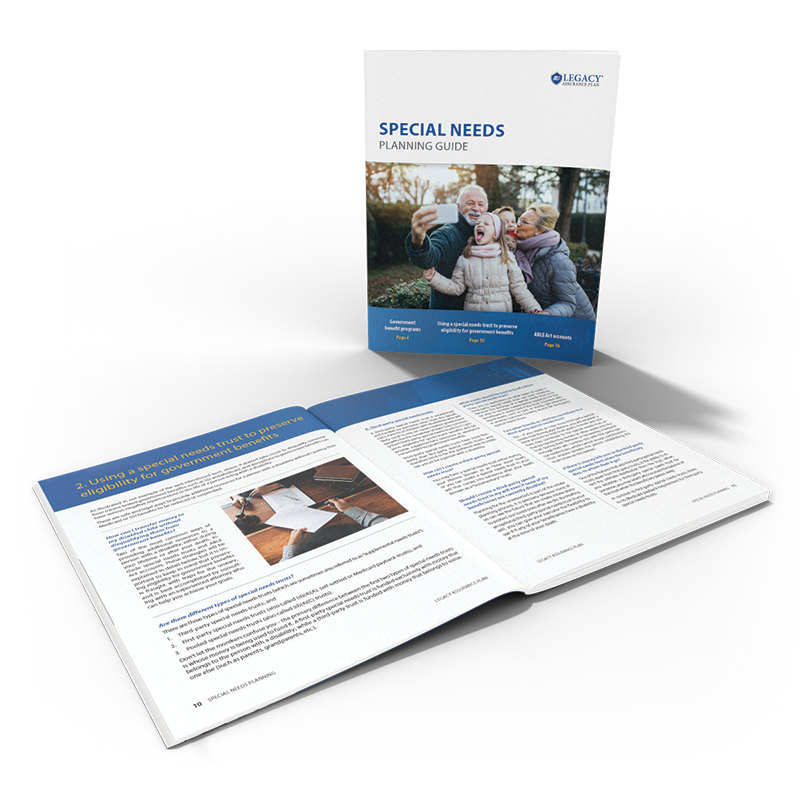Estate planning for beneficiaries with disabilities (a “special needs beneficiary”) is different from estate planning for able-bodied individuals, and these differences affect the planning of parents, grandparents and other loved ones of the person with a disability. If you have a beneficiary with a disability, your estate plan needs to be structured to protect inherited assets from being counted against the recipient for certain means-tested government benefit programs.

Common needs-based disability programs:
Supplemental Security Income
Medicaid
Residential programs
Veterans pension
Many special needs beneficiaries receive Supplemental Security Income and Medicaid benefits. Supplemental Security Income and Medicaid both have an asset limit of $2,000 for a single person. If a person who receives benefits from either program, an inheritance that pushes them over the limit will cause them to lose their benefits. Starting in the month after the person receives their inheritance, all of their means-tested government benefits, including Medicaid, will be suspended. The benefits can only be reinstated after they prove that they have spent down the money, usually by paying for care, and their assets are once again below the Medicaid asset limits. The loss of benefits will likely disrupt their established treatment and routine.


